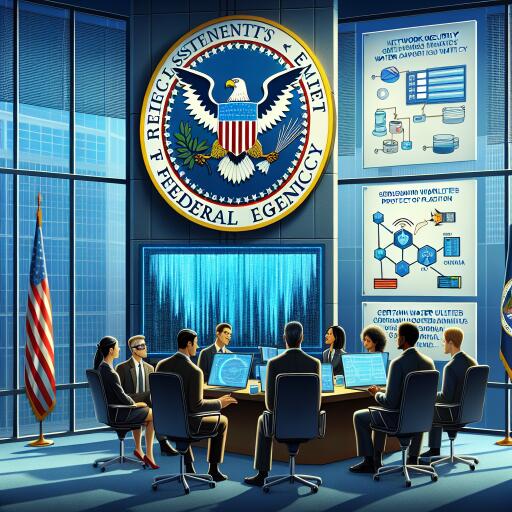Federal Agency Raises Alarm on Cybersecurity Threats to Water Utilities
In an urgent communication, the Environmental Protection Agency (EPA) has issued a nationwide alert to water utilities, signaling an increased risk of cyber-attacks. These potential threats, originating from groups with ties to Iran and China, are aimed at disrupting essential services related to both drinking and wastewater management systems.
The EPA’s recent announcement underscores the escalating severity and frequency of cyber threats targeting critical infrastructure sectors. Despite these alarming advisories, certain regions have reported no incidents of such cybersecurity breaches. For instance, a representative from the Honolulu Board of Water Supply confirmed their systems have remained secure, highlighting adherence to stringent cybersecurity protocols recommended by both the U.S. Department of Homeland Security’s Cybersecurity and Infrastructure Security Agency (CISA) and the White House.
According to federal observations, these cyber menaces have originated from groups affiliated with the Iranian Government’s Islamic Revolutionary Guard Corps and a Chinese state-sponsored entity known as Volt Typhoon. The former has been accused of launching cyber offensives against U.S. infrastructure, exploiting vulnerabilities such as unchanged default manufacturer passwords in operational technologies at water facilities. On the other hand, the Volt Typhoon group, associated with the People’s Republic of China, has engaged in activities that compromise the information technology systems of crucial infrastructure sectors, including those of water utilities. Such operations by Volt Typhoon are interpreted not as mere cyber espionage but as positioning for potential sabotage amidst geopolitical tensions.
The critical nature of drinking water and wastewater systems, integral to national security and public health, makes them prime targets for cyber-attacks. Many of these utilities face challenges in adopting comprehensive cybersecurity practices due to resource constraints and a lack of technical expertise.
“Protecting our nation’s drinking water is a cornerstone of EPA’s mission,” emphasized EPA Deputy Administrator Janet McCabe. “We are fully committed to leveraging all available tools, including enforcement actions, to safeguard our water systems from cyber threats.”
Despite heightened security measures, an assessment reveals that a significant portion of water systems have yet to meet the full compliance standards under the Safe Drinking Water Act, with some exhibiting critical cybersecurity loopholes like outdated passwords and vulnerable single login credentials.
The EPA’s proactive stance, including issuing an enforcement alert, is part of broader efforts by the Biden-Harris Administration to mitigate the risks of cyber-attacks on America’s water utilities. This strategic initiative underscores the urgent need for water systems across the nation to fortify their cybersecurity defenses to protect against external threats that endanger public health and safety.
In light of recent developments and ongoing surveillance by federal agencies, it is clear that the specter of cyber warfare looms large over the nation’s critical infrastructure. The emphasis on heightened security protocols and the collaborative efforts between governmental bodies and local utilities symbolize a united front against a growing cyber threat landscape, aiming to ensure the uninterrupted provision of safe drinking water and the integrity of wastewater management systems across the United States.










